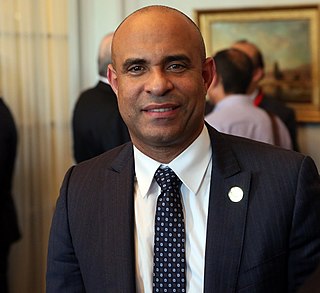A Quote by Edwidge Danticat
There is this split between the Haiti of before the earthquake and the Haiti of after the earthquake. So when I'm writing anything set in Haiti now, whether fiction or nonfiction, always in the back of my mind is how people, including some of my own family members, have been affected not just by history and by the present but also by the earthquake.
Related Quotes
Language is such a powerful thing. After the earthquake, I went to Haiti and people were talking about how [they] described this feeling of going through an earthquake. People really didn't have the vocabulary - before we had hurricanes. I'd talk with people and they'd say, "We have to name it; it has to have a name."
I actually happened to be in Haiti right before the earthquake in 2010. I was there already with the organization I work with now, Artists for Peace and Justice, visiting the primary school that I had adopted, the Academy for Peace and Justice in Port-au-Prince. I came back, and within days, the earthquake happened.





































